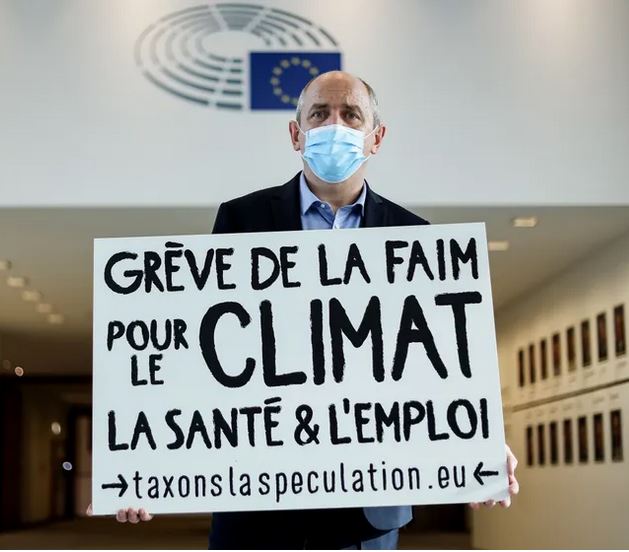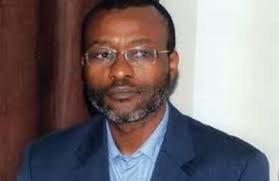Theme: Promoting Empowerment of People in Achieving Poverty Eradication, Social Integration and Full Employment and Decent Work for All
Introduction
The global economic and financial crisis continues to make an impact on the lives of people around the world. It has been a major setback to the achievement of the Millennium Development Goals and the World Programme of Action for Youth. The crisis has caused more people than ever to be living in poverty. The crisis has also proven that youth are a very vulnerable group. Now, as the global population reaches 7 billion, the world is in need of a strong coordination of efforts, the empowerment of civil society organizations, and true global solidarity. With special regard to youth and the eradication of poverty, Pax Romana finds that today’s pressing issues are education, employment, and political participation.
Education
The crisis has created a situation where there is a surge in those seeking admission to institutions of higher learning. As governments grapple with budgetary issues, funding for education is being reduced even though there is an increase in demand. For those who live in countries where higher education is either partially or entirely subsidized by the state, governments and institutions will be faced with several choices: limit admission, allow for an increase in admission while reducing student subsidies, or provide a lower quality education to the same number of students.
Reducing subsidies to students in higher education is a risky move because it directly affects the future and development of a country. A reduction of subsidies and a growth in enrollment will likely place any financial burdens faced by universities on individual students. This situation gives wealthier students disproportionate access to education. Students who are economically challenged are automatically disadvantaged. The greatest weapon for defeating poverty in a developing state is an education system that is open to all people, regardless of wealth, gender, religion, or ethnicity. If poverty eradication is to be taken seriously by the Members States, governments must understand the value of an education that is accessible to all members of society.
Youth Unemployment
According to the International Labor Organization’s Global Employment Trends for Youth: 2011 Update, youth unemployment is a major contributing factor to the protest movements that have erupted around the world, especially in the Middle East and North Africa.[1] Moreover, this trend toward protest has helped galvanize the “occupy” movements against corporate greed and the preferential treatment western governments have given to banks and other economic players. As a result, something must be done to help young people become productive members of society, and not just persons on the fringe who feel disconnected.
Youth non-governmental organizations understand well that young people are essential to economic development. For this reason, organizations such as Pax Romana focus on the development of the person as a means to eradicate poverty. Young people who are active in youth associations and community-based and faith-based organizations develop a set of transferable skills which are needed for decent employment. Projects which focus on the development of the young person help to empower youth with transferable skills.
With projects that engage young people, Pax Romana assists in the formation of broad skill areas such as:
- Communication
- Research and planning
- Human relations
- Organization and management; and
- Leadership
With these broad skill areas of social development, young people gain necessary tools to procure employment and earn a decent wage. But, as governments have continued to implement decades-old failed economic policies that are more concerned with saving the wealthy at the expense of the masses, youth programs will continue to suffer.
Currently, governments have divested funds from youth programs to cater to powerful corporate interests, which played a central role in bringing about the recent economic collapse. As protest movements around the world continue to gain ground, it is in the best interests of the Member States to engage with young people and work with them to bring about a brighter future.
Youth Participation
The political protests that have engulfed many societies around the world are directly connected to the lack of youth participation in government. Far too often, governments make decisions without ever addressing the needs of young people or requesting their input on how decisions should be made. It is well known that the passion of young people can be channeled for the greater good. As a result, it is critical that governments engage their youth so that dialogue can begin and violence on the streets of national capitals can be prevented.
When given the opportunity to play an enhanced role in the machinations of governance and other social sectors, pressing social problems like youth unemployment and crime can be alleviated. When youth are allowed to blossom into full participating members of society at an early age, they learn to value their place in their individual communities. By allowing young people to take a more active role in the decision-making processes vital to society, youth can play a much more valuable role in all levels of governance.
In order to achieve youth participation, negative stereotypes surrounding youth must be battled. Adults have forgotten about the value of youth to society. As the Youth Employment Network wrote in its report Joining Forces with Young People: “Rather than being viewed as a problem or risk to be contained or solved, youth should be recognized as social actors with skills and capacities to bring about constructive solutions to societal issues that directly affect them. Policy makers should not only invite young people into policy discussions but also listen and act upon their advice.”
The Secretary General of the United Nations, Mr. Ban Ki-moon, said: “Youth should be given a chance to take an active part in the decision-making of local, national and global levels.” It is especially important that young people are given the opportunity to play a role in politics and policy making at all levels.
Recommendations
In conclusion, we make the following recommendations:
1. The right to an education must not fall victim to the economic and financial crisis. Instead of cutting education budgets, this is the opportune moment to invest more in education. A long-term vision, rather than seeking immediate outcomes, will help to eradicate poverty. All efforts should be made to prevent the marginalization of the poor with respect to access to education from the primary level to university, as well institutions for vocational learning.
2. A small percentage of national defense budgets should be used to fund youth development projects. All over the world, governments have allowed military spending to grow at the expense of necessary social development. If member states dedicate even 1% of current military spending and use it to fund youth grassroots initiatives, greater economic and social development can be achieved. Young people in every country have the capacity to bring positive change to their communities and the world. With a little bit of financial assistance from their governments, youth everywhere can be given the opportunity to do truly wonderful work.
3. Countries must take seriously the protests movements that have erupted around the world. Thus, governments should ensure that young people have a voice in national debates, especially in the development of domestic policies. Participating in this process allows young people to take ownership of their future. The establishment of national youth councils and the assurance of their independent governance from the central government ensures that the voice of even the most disadvantaged and vulnerable groups are expressed. As the World Programme of Action for Youth advocates, Member States should strive for the “full and effective participation of young people and youth organizations at the local, national, regional and international levels . . . for the realization of the Millennium Development Goals . . .
4. States should mobilize the necessary resources to ensure that youth delegates are able to participate in the proceedings held within the United Nations and its agencies. Participation of youth leaders at the United Nations is critical because it provides hands-on training to future political leaders and allows young people to have a voice in the development of global policy.
5. States must seek to utilize the technical skills of young people and expand the amount of work available in fields like clean energy and sustainable development. The knowledge of youth can help forge advancements in cutting edge industries that can improve the economy, provide countless jobs, and protect the environment from the destructive powers of unfettered human development.
6. States should encourage social cohesion and use youth as the vehicle to promote stability and peace. This is especially critical in pluralistic societies. The purpose of the 2010-2011 International Year of Youth was to promote dialogue and mutual understanding. Youth can be at the forefront of any efforts to alleviate civil strife. Young people already have a great deal of experience in countries throughout the world in working with those who are different from them. As a result, youth have the capacity to bring the many groups that may exist in a single society together for the sake of greater economic and social development.
[1] http://www.ilo.org/wcmsp5/groups/public/—ed_emp/—emp_elm/—trends/documents/publication/wcms_165455.pdf



Leave A Comment
You must be logged in to post a comment.